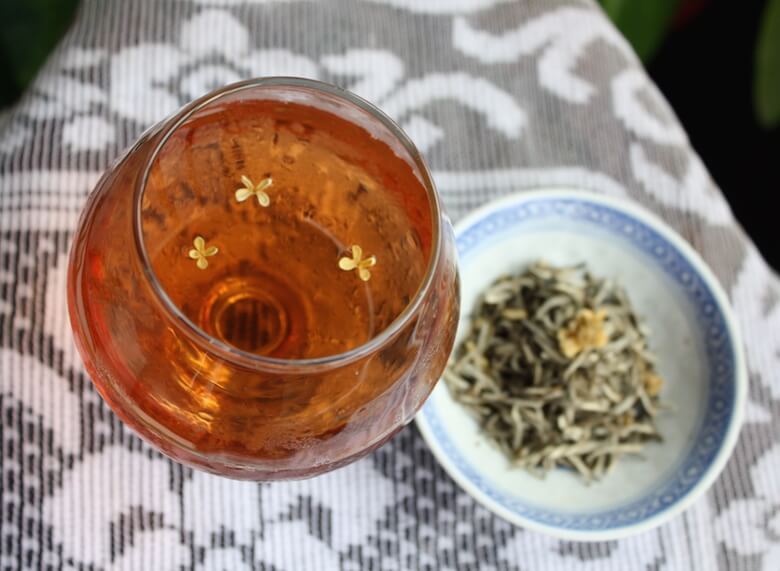
My paternal grandparents lived on the campus of the university lauded as the “Columbia University of the East” in Shanghai, China. I spent countless days of my adolescence running up and down the alleys around the retired professors’ building, where Osmanthus trees emitted the sweet fragrance of their delicate yellow flowers. This past September, I was struck by nostalgia as I approached the building for the last time, inhaling the scent.

This August, my grandmother, Sun Xueqing, passed away after a years-long battle with lung cancer. My sister and I called her simply “Nai Nai,” the Chinese honorific for father’s mother. She was a biochemistry professor, known by her students as a patient teacher to all. Having descended from scientists, sometimes I wonder how a bartender like me can pay homage to a woman who affected the lives of many. This recipe is dedicated to my Nai Nai, who cared for her students, community and family deeply.
Baijiu (literal translation: white [clear] alcohol) is the beloved national spirit of China. Owing to China’s massive population, it is the biggest-selling spirit in the world. Most Westerners have never heard of it and upon first impression find the smell “weird.” As someone who grew up with Western friends who said everything in my parents’ cabinets was “weird,” I’m inclined to believe this reaction is in part influenced by internalized xenophobia.
To those who are familiar with baijiu, the aroma is sweetly earthy and smoky, with notes of pear. The spirit is distilled from sorghum and other grains, yielding a whopping 52 percent alcohol content (the ABV of vodka is 40 percent). One would be hard-pressed to find a special occasion in China without baijiu, and most would struggle to keep up with the tradition of countless “Ganbei” (used similarly to “cheers,” but its actual meaning is closer to “bottoms up”).

Kuei Hua Chen Chiew, a.k.a. “Cassia Wine” or Osmanthus wine, is a sweet liquor distilled from weak baijiu with Osmanthus flowers. Its ABV is typically less than 20 percent. Osmanthus wine carries a great deal of cultural significance; it’s often gifted as a birthday present, served during the Mooncake Festival and used as a medicinal wine in traditional Chinese medicine. My cocktail uses Osmanthus wine as a mixing agent, similar to the function of sweet vermouth in a classic Manhattan. The following cocktail is inspired by that classic cocktail, made with ingredients that are significant to Chinese culture. The liquors are photographed in front of my grandmothers’ houseplants, which she tended to dearly.
“Farewell With Flowers”
2 oz of daisy-tea-infused baijiu* (pictured is Beijing Capital Baijiu)
3/4 oz aged Osmanthus wine
3–4 dashes of cardamom bitters
Chill a coupe with ice water. Combine above ingredients in a tall mixing glass. Stir mixture for at least 30 revolutions. With a tea strainer, fine strain mixture into chilled coupe. Garnish with a few osmanthus blossoms.
*Infuse two cups of plain baijiu with two tablespoons of dried daisy leaves. Strain after 4 hours.



